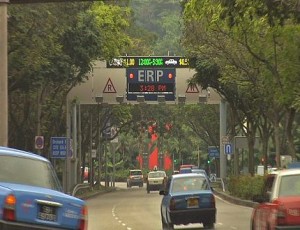Tom McNamara, Blueprint America
 As Washington considers a nearly $1 trillion economic stimulus bill to combat an increasing recession, with billions going to public works projects, governments worldwide will, at the same time, spend as much as $1.5 trillion annually for the next 20 years to make up for a lack of similar spending on infrastructure in years past, according to a new study by CIBC World Markets.
As Washington considers a nearly $1 trillion economic stimulus bill to combat an increasing recession, with billions going to public works projects, governments worldwide will, at the same time, spend as much as $1.5 trillion annually for the next 20 years to make up for a lack of similar spending on infrastructure in years past, according to a new study by CIBC World Markets.
Like America, much of the world sees infrastructure investment as a way to boost employment as many countries undergo their own economic downturns and, even, recessions.
In the past, many countries balanced their national budgets by neglecting construction for new public assets and the maintenance of existing buildings and roads. That neglect has now provided an opportunity for economic recovery, in addition to better infrastructure maintenance.
According to the CIBC forecasts:
• North America will spend $180 billion on infrastructure each year.
• Europe will spend $205 billion.
• Asia will spend $400 billion.
• And $10 billion will be invested in Africa annually.
A wary world over U.S. stimulus spending
At the World Economic Forum in Davos, Switzerland, global leaders certainly understand the necessity of the current American stimulus package, but many are concerned about, as The New York Times reports, “the long-term fallout from increased borrowing by the United Stated government, and its potential to drive up inflation and interest rates around the world.”
Assuming the American stimulus plan is approved, an estimated $2.2 trillion in new debt – including the $700 billion Troubled Asset Relief Program – will be issued this year.
Seemingly, as borrowing got us into this mess, government borrowing will get us out – or, at least, that is the plan.
The Japanese lesson
In the 1990s, Japan experienced a similar economic downturn to that of the U.S. (and, it again faces a similar recession today). To stimulate the Japanese economy then, the government invested heavily in public-works projects to lift the economy out of a 15-year economic slump. But, the investment accomplished little and left the country with little-used bridges and other infrastructure. In dealing with its likely recession now, the Japanese government announced a $51 billion package focused on payouts to families and businesses (which, has yet to work in the U.S.).


